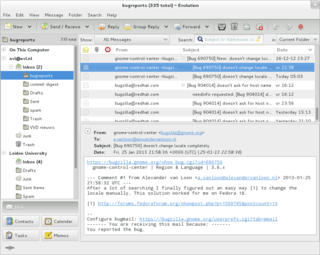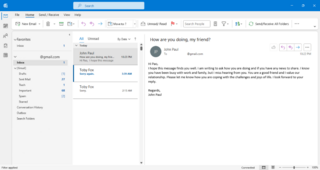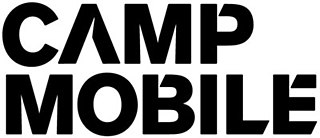
Email is a method of transmitting and receiving messages using electronic devices. It was conceived in the late–20th century as the digital version of, or counterpart to, mail. Email is a ubiquitous and very widely used communication medium; in current use, an email address is often treated as a basic and necessary part of many processes in business, commerce, government, education, entertainment, and other spheres of daily life in most countries.

Spamming is the use of messaging systems to send multiple unsolicited messages (spam) to large numbers of recipients for the purpose of commercial advertising, non-commercial proselytizing, or any prohibited purpose, or simply repeatedly sending the same message to the same user. While the most widely recognized form of spam is email spam, the term is applied to similar abuses in other media: instant messaging spam, Usenet newsgroup spam, Web search engine spam, spam in blogs, wiki spam, online classified ads spam, mobile phone messaging spam, Internet forum spam, junk fax transmissions, social spam, spam mobile apps, television advertising and file sharing spam. It is named after Spam, a luncheon meat, by way of a Monty Python sketch about a restaurant that has Spam in almost every dish in which Vikings annoyingly sing "Spam" repeatedly.

BlackBerry is a discontinued brand of smartphones and other related mobile services and devices. The line was originally developed and maintained by the Canadian company BlackBerry Limited from 1999 to 2016, after which it was licensed to various companies.
news.admin.net-abuse.email is a Usenet newsgroup devoted to discussion of the abuse of email systems, specifically through email spam and similar attacks. According to a timeline compiled by Keith Lynch, news.admin.net-abuse.email was the first widely available electronic forum for discussing spam.

Microsoft Outlook is a personal information manager software system from Microsoft, available as a part of the Microsoft 365 software suites. Though primarily being popular as an email client for businesses, Outlook also includes functions such as calendaring, task managing, contact managing, note-taking, journal logging, web browsing, and RSS news aggregation.
Various anti-spam techniques are used to prevent email spam.

The Controlling the Assault of Non-Solicited Pornography And Marketing (CAN-SPAM) Act of 2003 is a law passed in 2003 establishing the United States' first national standards for the sending of commercial e-mail. The law requires the Federal Trade Commission (FTC) to enforce its provisions. Introduced by Republican Conrad Burns, the act passed both the House and Senate during the 108th United States Congress and was signed into law by President George W. Bush in December 2003 and was enacted on January 1, 2004.

Mobile phone spam is a form of spam, directed at the text messaging or other communications services of mobile phones or smartphones. As the popularity of mobile phones surged in the early 2000s, frequent users of text messaging began to see an increase in the number of unsolicited commercial advertisements being sent to their telephones through text messaging. This can be particularly annoying for the recipient because, unlike in email, some recipients may be charged a fee for every message received, including spam. Mobile phone spam is generally less pervasive than email spam, where in 2010 around 90% of email is spam. The amount of mobile spam varies widely from region to region. In North America, mobile spam steadily increased after 2008 and accounted for half of all mobile phone traffic by 2019. In parts of Asia up to 30% of messages were spam in 2012.

Email spam, also referred to as junk email, spam mail, or simply spam, is unsolicited messages sent in bulk by email (spamming). The name comes from a Monty Python sketch in which the name of the canned pork product Spam is ubiquitous, unavoidable, and repetitive. Email spam has steadily grown since the early 1990s, and by 2014 was estimated to account for around 90% of total email traffic.
Wayne Mansfield, of Perth, Western Australia, was the head of direct marketing business T3 Direct Marketing, operating under a series of two-dollar companies, and in 2005 became the first Australian to be prosecuted for email spamming.
Mobile marketing is a multi-channel online marketing technique focused at reaching a specific audience on their smartphones, feature phones, tablets, or any other related devices through websites, e-mail, SMS and MMS, social media, or mobile applications. Mobile marketing can provide customers with time and location sensitive, personalized information that promotes goods, services, appointment reminders and ideas. In a more theoretical manner, academic Andreas Kaplan defines mobile marketing as "any marketing activity conducted through a ubiquitous network to which consumers are constantly connected using a personal mobile device".
On Internet usage, an email bomb is a form of net abuse that sends large volumes of email to an address to overflow the mailbox, overwhelm the server where the email address is hosted in a denial-of-service attack or as a smoke screen to distract the attention from important email messages indicating a security breach.
Postini, Inc. was an e-mail, Web security, and archiving service owned by Google from 2007 until its closure. It provided cloud computing services for filtering e-mail spam and malware, offered optional e-mail archiving, and protected client networks from web-borne malware. In November 2011, Google announced the discontinuation of Postini in August 2012.

Tagged is a social discovery website based in San Francisco, California, founded in 2004. It allows members to browse the profiles of any other members, and share tags and virtual gifts. Tagged claims it has 300 million members as of 2014. As of September 2011, Quantcast estimates Tagged monthly unique users at 5.9 million in the United States, and 18.6 million globally. Michael Arrington wrote in April 2011 that Tagged is most notable for the ability to grow profitably during the era of Facebook.
Brightmail Inc. was a San Francisco–based technology company focused on anti-spam filtering. Brightmail's system has a three-pronged approach to stopping spam, the Probe Network is a massive number of e-mail addresses established for the sole purpose of receiving spam. The Brightmail Logistics and Operations Center (BLOC) evaluates newly detected spam and issues rules for ISPs. The third approach is the Spam Wall, a filtering engine that identifies and screens out spam based on the updates from the BLOC.

CompuServe Inc. v. Cyber Promotions, Inc. was a ruling by the United States District Court for the Southern District of Ohio in 1997 that set an early precedent for granting online service providers the right to prevent commercial enterprises from sending unsolicited email advertising – also known as spam – to its subscribers. It was one of the first cases to apply United States tort law to restrict spamming on computer networks. The court held that Cyber Promotions' intentional use of CompuServe's proprietary servers to send unsolicited email was an actionable trespass to chattels and granted a preliminary injunction preventing the spammer from sending unsolicited advertisements to any email address maintained by CompuServe.

PrivacyStar is a service that identifies who is calling and why, and provides for call complaint filing which reports to the Federal Trade Commission. The PrivacyStar service is available on the web and on mobile applications for Android and iOS. On several applications powered by PrivacyStar, call and text blocking is available. The applications, along with PrivacyStar’s iPhone Lookup+ application, enable users to file potential debt collector and telemarketer violations directly to the FTC. The application captures detailed information about possible Fair Debt Collection Practices Act violations including date, time, number, and identity and allows users to easily provide this information to regulatory agencies so they may take action. PrivacyStar has over 1.2 million users who have blocked over 120 million calls and filed over 300,000 complaints directly with the Federal Trade Commission as of September 2012. In fact, PrivacyStar is the leading source of all call complaint data reported to the FTC. In 2015, its users filed 31% of all call complaints. On February 13, 2013, PrivacyStar launched a free SMS spam complaint filing feature for Android smartphones. The application allows users to file text message spam complaints in addition to the existing ability to file call complaints directly to the Federal Trade Commission from their Android phones.

Camp Mobile, founded in February 2013, is a mobile application development company based in Seoul, Korea. Ram Lee and Jongmahn Park are the co-CEOs. The company currently operates seven mobile services ranging from social network service to smartwatch application, including BAND, Moot, SNOW, Whoscall, WatchMaster, LINE Deco, and LINE Launcher.

IBM MaaS360 is a SaaS Unified Endpoint Management (UEM) solution offered by IBM that manages and protects any existing endpoint including laptops, desktops, mobile devices and apps, wearables, IoT and purpose built devices and allow protected, low risk access to company resources. IBM Security MaaS360 with Watson integrates with current security platforms owned by different companies. It’s AI powered analytics removes friction by reducing actions required from the device user.

Google Messages is a text messaging software application developed by Google for its Android and Wear OS mobile operating systems. It is also available as a web app.












